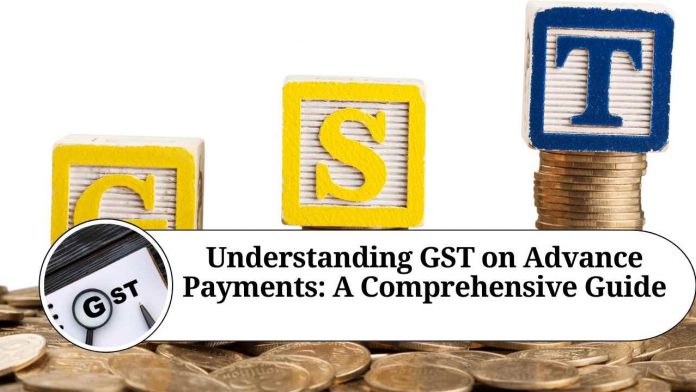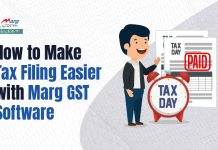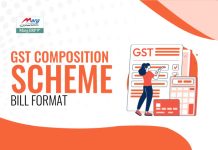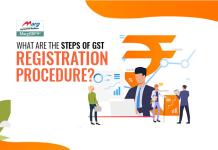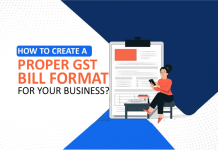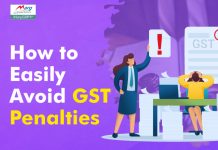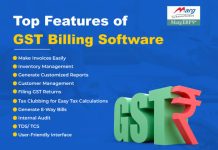Introduction
In the world of business, it is common for companies to receive advance payments from customers for goods or services that will be provided at a later date. However, when it comes to tax implications, particularly under the Goods and Services Tax (GST) regime, the treatment of such advance payments can be a bit complex. In this blog, we will delve into the nuances of GST on advance payments and provide you with a comprehensive guide to navigate this aspect of taxation.
What is an advance payment?
Before we dive into the GST implications, let’s define what we mean by an advance payment. An advance payment refers to the payment received by a supplier before the actual supply of goods or services. It is essentially a prepayment made by the customer to secure the future supply.
GST on advance payments: Under GST, the treatment of advance payments depends on the nature of the supply and the time of supply. The following scenarios can arise when it comes to GST on advance payments:
- Supply of Goods: If a supplier receives an advance payment for the supply of goods, GST becomes applicable on the advance received. The supplier is required to pay GST on the advance in the same manner as if the supply has been made. The tax liability arises at the time of receiving the advance payment.
- Supply of Services: For services, the GST on advance payments is slightly different. Until the time of supply, i.e., when the service is actually performed, GST is not applicable on the advance payment. The supplier is not required to pay GST on the advance received until the time of supply.
- Time of supply: The time of supply plays a crucial role in determining the tax liability on advance payments. For goods, the time of supply is determined based on the issuance of an invoice or the receipt of payment, whichever is earlier. However, for services, the time of supply is determined based on specific criteria outlined in the GST law, such as the completion of the service or the issuance of an invoice.
Adjustment of GST on advance payments: Once the actual supply of goods or services is made, the supplier must adjust the GST liability on the advance payment against the final tax liability. The supplier can claim a set-off of the GST paid on the advance against the GST liability on the invoice raised for the supply.
Impact on the recipient of the supply: As a recipient of a supply, if you have made an advance payment, you need to consider the GST treatment as well. If you are a registered person under GST, you can claim an input tax credit (ITC) on the GST paid by the supplier on the advance. However, if you are not registered under GST, you cannot claim any ITC on the advance payment.
Conclusion
Understanding the implications of GST on advance payments is essential for businesses to ensure compliance with the GST law. It is crucial to carefully consider the time of supply and adjust the GST liability accordingly. Both suppliers and recipients should be aware of their respective responsibilities when it comes to advance payments under GST.
Other Related Blogs: Section 144B Income Tax Act
Frequently Asked Questions (FAQs)
Q1: Is GST applicable on advance payments for goods and services?
A: Yes, GST is applicable on advance payments for both goods and services. The treatment of GST on advance payments varies depending on the nature of the supply and the time of supply.
Q2: When is GST payable on advance payments for goods?
A: GST is payable on advance payments for goods at the time of receiving the advance. The supplier is required to pay GST on the advance in the same manner as if the supply has been made.
Q3: When is GST payable on advance payments for services?
A: Unlike goods, GST on advance payments for services is not payable until the time of supply. The supplier is not required to pay GST on the advance received until the service is actually performed.
Q4: How is the time of supply determined for goods?
A: The time of supply for goods is determined based on the earlier of either the issuance of an invoice or the receipt of payment. GST liability on the advance payment arises at this point.
Q5: How is the time of supply determined for services?
A: The time of supply for services is determined based on specific criteria outlined in the GST law, such as the completion of the service or the issuance of an invoice. GST liability on the advance payment arises accordingly.
Q6: Can a supplier adjust the GST paid on advance against the final tax liability?
A: Yes, once the actual supply of goods or services is made, the supplier can adjust the GST liability on the advance payment against the final tax liability. The supplier can claim a set-off of the GST paid on the advance against the GST liability on the invoice raised for the supply.
Q7: Can a recipient claim input tax credit (ITC) on the GST paid by the supplier on the advance payment?
A: If the recipient is a registered person under GST, they can claim input tax credit (ITC) on the GST paid by the supplier on the advance payment. However, if the recipient is not registered under GST, they cannot claim any ITC on the advance payment.
Q8: What should businesses do to ensure compliance with GST on advance payments?
A: Businesses should carefully consider the time of supply and adjust the GST liability accordingly. It is advisable to consult a tax professional or seek guidance from the relevant tax authorities to ensure accurate compliance with the GST regulations in their jurisdiction.
Q9: Are there any penalties for non-compliance with GST on advance payments?
A: Non-compliance with GST regulations, including the treatment of advance payments, may attract penalties and fines as per the provisions of the GST law. It is crucial to adhere to the guidelines and fulfill the tax obligations to avoid any penalties.
Q10: Is the treatment of GST on advance payments the same in all countries?
A: The treatment of GST on advance payments may vary from country to country, as GST regulations can differ. It is important to understand and comply with the specific GST laws applicable in your jurisdiction. Consulting with a tax professional or referring to the relevant tax authorities is recommended for accurate guidance.

